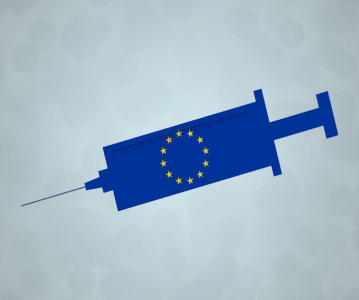2019, the year that got serialization done!

The past 12 months have been busy as many companies fought to comply with serialization regulations.
Brexit may have dominated the headlines throughout 2019, but for many contract organizations, the past 12 months have been defined by other issues. Allan Bowyer, Director of Industry Marketing, TraceLink, shares what he believes have been the trends or innovations that have been the most influential in the industry.
"It is impossible to talk about 2019 without mentioning the serialization regulations that have forced significant developments and opened the door for further innovation in the management of the pharma supply chain.
"The EU Falsified Medicines Directive (FMD) came into force in February and its rollout wasn’t a simple ‘find solution-implement-comply’ transition. A number of countries implemented post-deadline stabilization periods to help ease the transition and prevent medicine shortages – and with good reason. The success of FMD depends on pharmacists being able to scan and verify every serialized product, but a significant number of dispensers in Europe are still non-compliant, with France and the UK among those having the highest rates of missed connectivity. Broadly speaking, regulators in each country gave dispensers leeway to dispense packs where they were confident an alert was false. Some country authorities have now ended their stabilization periods, while others are beginning to wind down with most expecting full compliance by February 2020.
"Data integrity issues have also thrown out some notable challenges in various ways throughout the year. When solutions first went live, handling falsified medicine alerts was a significant concern for manufacturers and dispensers, with users saying they had not anticipated having to deal with so many alerts so soon. Fortunately, most of these were caused by data entry problems rather than intentional wrongdoing - this has been somewhat resolved over time, but these alert causes are still much higher than expected.
"There has also been a notable increase in the number of false alerts occurring due to errors made by dispensers, mostly caused by misconfigured scanners and double scanning/decommissioning. These are still false alerts and the EMVO has tasked manufacturers with identifying the root causes of alerts and working to reduce the alert rate from its current rate (latest according to EMVO is 2.87%) to less than 0.05%. This will be an ongoing effort likely to carry on for months to come."
Russia
"We saw a huge uplift in engagement from current customers in Russia, as well as a number of new partners that operate in the region in mid-2019.
"The serialization and reporting requirements for Russia are considered the most complex in the world. As of 1 January 2020, all medicine imported into and traded within Russia must comply, and this applies to more than 370 manufacturers.
"The shortness of the deadline and lateness of clarifications when it came to the requirements of the law and technical guidelines (which continue to evolve), combined with the incredible complexity, has put serious pressure on businesses operating in the country, and some, though late to the game, have not yet started implementation. For those that haven’t, it is imperative to choose a compliance solution, start implementing it now and start training personnel on the new system and business processes as soon as possible after that."

Related News
-
News Patients vs Pharma – who will the Inflation Reduction Act affect the most?
The Inflation Reduction Act brought in by the Biden administration in 2022 aims to give better and more equitable access to healthcare in the USA. However, pharma companies are now concerned about the other potential costs of such legislation. -
News CPHI Podcast Series: What does the changing US Pharma market mean for industry and patients alike?
In this week's episode of the CPHI Podcast Series Lucy Chard, Digital Editor for CPHI Online is joined by James Manser to discuss the political and market changes in the US pharma field. -
News CPHI Barcelona Annual Report illuminates industry trends for 2024
The CPHI Annual Survey comes into it’s 7th year to report on the predicted trends for 2024. Over 250 pharma executives were asked 35 questions, with their answers informing the industry landscape for the next year, spanning all major pharma marke... -
News Which 10 drugs are open to price negotiation with Medicare in the USA?
The Centres for Medicare & Medicaid Services, under the Biden administration in the USA, has released a list of the 10 drugs that will be open to price negotiations as part of the new legislation under the Inflation Reduction Act (IRA). -
News EU Medical Devices Regulation causes unintended disappearances of medical devices for children, doctors state
Doctor groups and associations have appealed to the EU to correct the EU Medical Devices Regulation law that may cause unintended shortages of essential drug and medical devices for children and rare disease patients. -
News 10 Major Drug Approvals So Far in 2023
Last year, 37 novel drugs were approved by the FDA, this was a high number for such a category, and covered many fields including oncology, demonstrating how promising further research is, and how it is only continuing to build. To date, there are alre... -
News Detecting Alzheimer's disease with a simple lateral flow test
A novel rapid diagnostic test for early-stage Alzheimer's disease has been developed using a biomarker binder from Aptamer Group along with technology from Neuro-Bio, the neurodegenerative disease experts. -
News CPHI Podcast Series: outsourcing and manufacturing trends
Listen to the CPHI Podcast Series this June to hear Gil Roth of the PBOA speak with Digital Editor Lucy Chard about the biggest trends and topics to watch in pharma outsourcing and manufacturing at the minute.
Position your company at the heart of the global Pharma industry with a CPHI Online membership
-
Your products and solutions visible to thousands of visitors within the largest Pharma marketplace
-
Generate high-quality, engaged leads for your business, all year round
-
Promote your business as the industry’s thought-leader by hosting your reports, brochures and videos within your profile
-
Your company’s profile boosted at all participating CPHI events
-
An easy-to-use platform with a detailed dashboard showing your leads and performance







